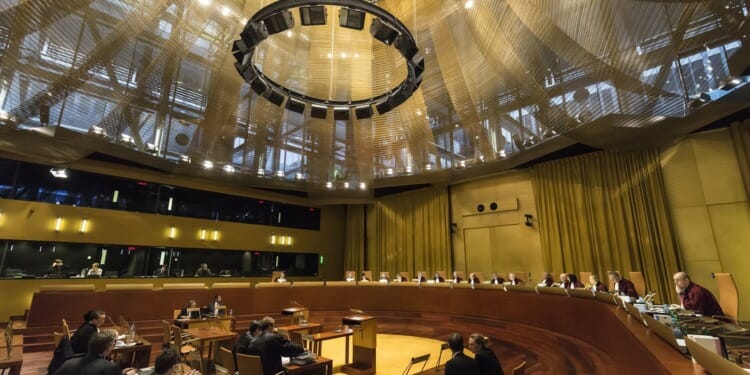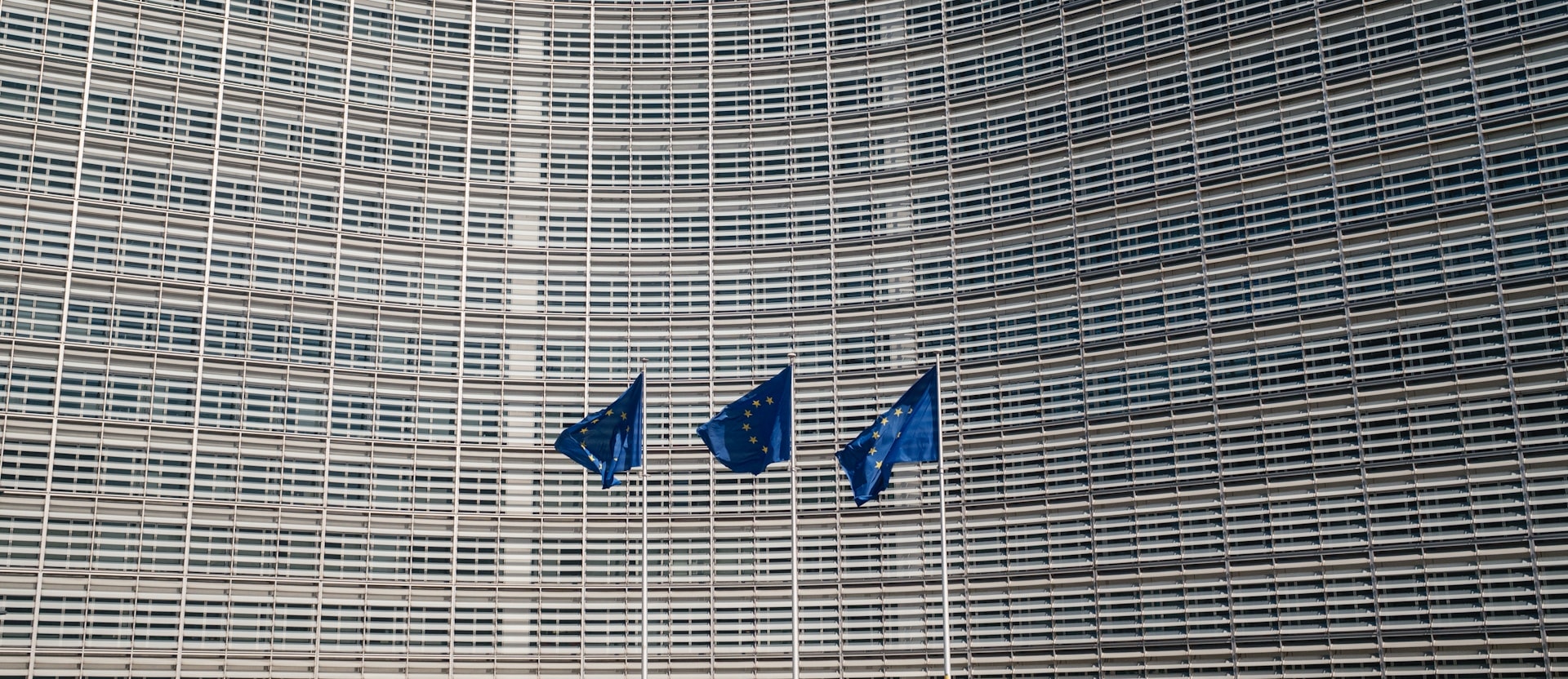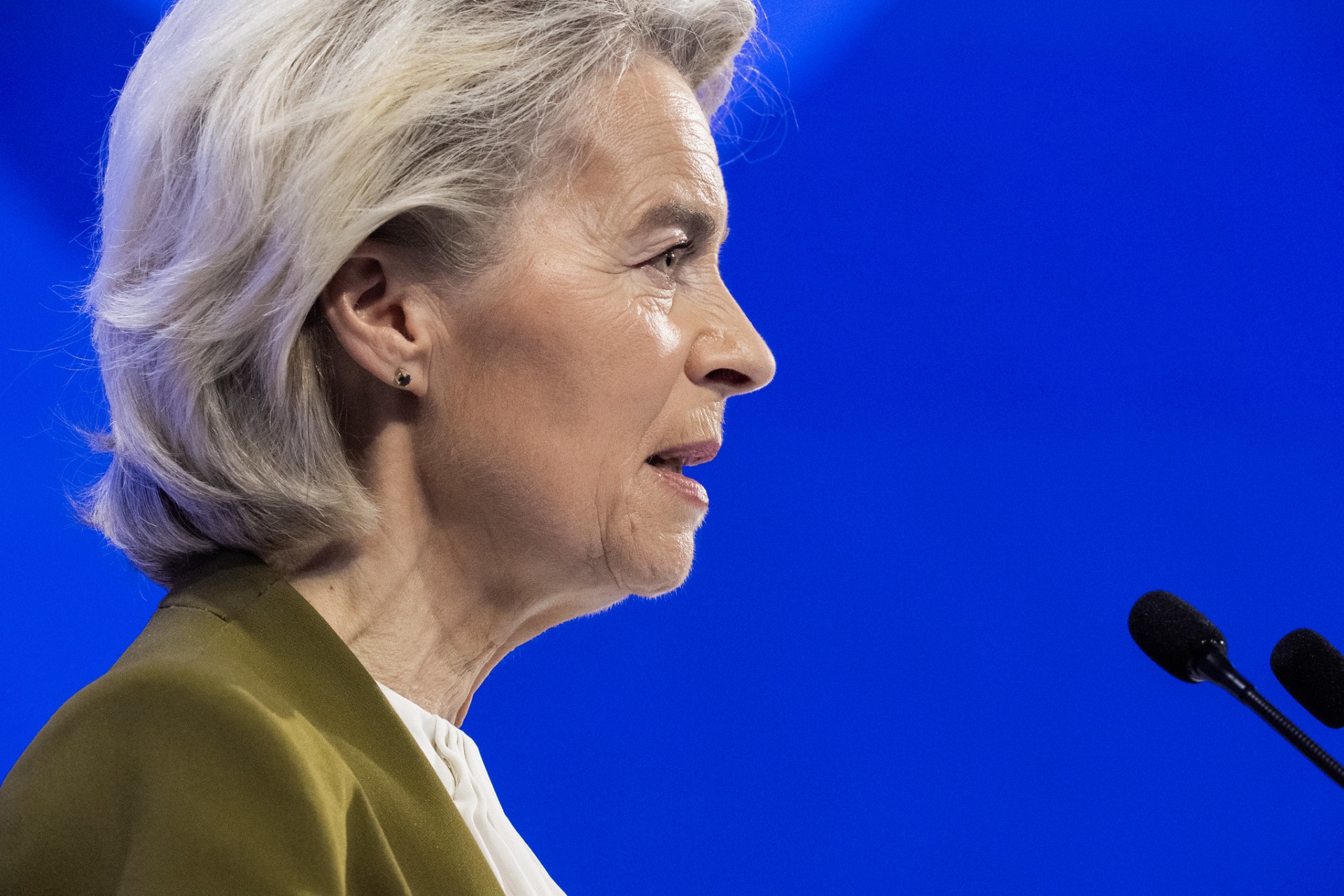Committed Europeans have long been trying to build up European law supremacy. The idea is that a law based on European values should put to rest national sovereignty and inward-looking special interests that go against European cooperation. The latest move in this direction is the EU Commission’s effort to link the financing of member states that deviate from European values to a “rule of law conditionality”. The move is aimed at Poland and Hungary, exponents of “illiberal democracy” that have taken down the independence of both their judiciary and their press.
Public opinion across the continent has welcomed the institution of a rule of law conditionality. According to the latest Eurobarometer results, it matters for Europeans. A big majority of 81 percent agreed the EU should only provide funds under the condition that member countries stick to rule of law and democratic principles, such as freedom of the press. Support for this conditionality was lowest in Poland — but still at 72 percent.
Yet, Poland and Hungary are not the only countries that object to the European rule of law, they are just the latest. The concept of EU law supremacy has faced constant pushback from national interest groups over the years and was one of the main factors behind Brexit.
Perhaps more surprisingly, the oldest opponent has been Germany, one of the six founding members of the European Common Market, the precursor to the EU. Every time a new policy is proposed by the EU Commission – most recently the recovery plan from Covid – Germany stops the approval process because it needs the green light from its constitutional court to proceed.
So far Germany’s constitutional court has generally approved EU policies and so far direct confrontation with the bloc’s highest court of law, the Court of Justice of the European Union located in Luxembourg has been avoided. The German court certainly saved the Euro – and the European project – back in 2012:
With one notable exception: the German court ruled against the European Central Bank (ECB)’s 2.2 trillion-euro PSPP – Public Sector Purchase Programme, giving the ECB an August 5 deadline to further justify its programme. The deadline passed without any stop to the PSPP because the German Federal Parliament had voted earlier, on 2 July 2020, to back the ECB programme, expressly recognizing “the ECB’s proportionality check as comprehensive”, thus fulfilling the conditions laid down by the German court’s ruling.
The difficulty with this mandatory recourse to its own constitutional court is the fact that Germany still does not recognize the supremacy of EU law over its own.
The newest opponents to the EU rule of law, Hungary and Poland, are also among its newest members. This week was a turning point in the fight between the European Union Commission and the ruling governments in both countries.
The first salvo came on Tuesday, September 7 when the European Commission moved to impose financial penalties against Poland for its refusal to comply with a ruling from the European Court of Justice (ECJ). The ruling in question is a Court’s “interim measures order” requested under Article 279 TFEU (of 14 July 2021) finding that Polish law establishing a disciplinary regime against judges is “not compatible with EU law” and calling for the dismantling of its “Disciplinary Chamber”. The EU Commission requested the Court of Justice to impose a daily penalty payment on Poland for as long as the measures imposed by the Court’s order are not fully implemented. This is a move that the Commission itself described as “rather exceptional.”
Exceptional in the sense of moving forward with fines even before the European Court has issued its final ruling (not expected before January 2022). This could clearly cause political turmoil. As one EU diplomat who follows the court cases closely told Politico, there were “concerns that given the high political tensions at hand, the court could face attacks from Polish or Hungarian politicians or pro-government media for being unfair, biased or even corrupt. The court got a foretaste of politically motivated attacks during the Brexit discussions when Brexiteers accused it of being an instrument that undermined the U.K.’s sovereignty.”
Consider that this could lead to an explosive political situation given the long stalemate that exists around the application of one crucial EU treaty article, Article 7 that allows for disciplinary procedures against straying EU members. Launched by the EU Commission against Hungary and Poland, starting with Poland as far back as December 2017, the disciplinary process got stuck in the EU Council where some countries (guess who) became reluctant to take steps that could lead to sanctions (as called for by Article 7.3).
The Key Role of the Court of Justice of the European Union
In the past, the European Court of Justice (ECJ) had been called upon to rule on purely technical issues like standards for privacy protection, EU competencies in trade policies, or the definition of “market dominance”. And, according to Kees Sterk, a Dutch judge and former member of the Netherlands’ Supreme Court, the European Court had always taken a “de-escalatory approach” when issuing rulings, finding legalistic solutions to problems, thus avoiding (or reducing) political fighting.
But now the ECJ is increasingly called upon to decide whether Hungary or Poland threaten EU laws and values. It is currently faced with three cases, two regarding Poland and one Hungary, that, in principle, will not be settled before next year.
The cases concern (1) the European Arrest Warrant as courts across the EU have raised doubts over whether they should still transfer criminals or suspects to Poland for prosecution, considering the concerns about the independence of the country’s judiciary; (2) the judicial independence of Polish judges that, according to an EU filing, is undermined by the new disciplinary regime for Polish courts rolled out in 2017; and (3) the question whether Hungary’s judiciary is still independent.
As Judge Sterk noted (regarding the Polish case – but it applies equally to Hungary): “This case boils down to the core question of the independence of the judiciary. The Court of Justice will have to clearly say whether it’s OK what is happening here, or not. This makes it a sensitive case with enormous political consequences.”
We might have the answer even sooner than next year as there are indications that the ECJ might follow an accelerated procedure. “In my view, we are talking about months rather than years,” EU Commission Vice President Věra Jourová said last week.
The court’s decisions are key for breaking the stalemate with Hungary and Poland — something that the Article 7 procedure cannot achieve — is its special powers to enforce its rulings. EU treaties allow the European Commission (article 260) to propose unlimited penalties against a country that “has not taken the necessary measures to comply with [a top court] judgment”. Gunther Krichbaum, a senior politician from German Chancellor Angela Merkel’s CDU party and the chair of the Bundestag’s European Affairs Committee made the point clear: “If judgments of the ECJ are not implemented, then a red line is definitely crossed here. That is what makes us in the European Union; that law and justice are respected, and justice is spoken by the Court of Justice.”
Charles Michel, the President of the European Council, in an interview on Wednesday, September 8, echoed this view on the matter when asked whether the values of the ruling parties in Poland and Hungary are compatible with fundamental EU values. He pointed out that “This is a pressing matter that we are not looking away from. We are facing it head-on.” And he added: “To give you a clear example, during last year’s major negotiations which led to the adoption of an unprecedented recovery plan, we decided to set up a mechanism to make financing conditional on respect for the rule of law. This tool strengthens the arsenal within the European democratic framework and gives the European institutions additional means to be more demanding when it comes to the rule of law and therefore to values.”
Hungary and Poland Fight Back European Law and European Commission
While the EU has decided to use this rule of law tool, upping the ante, both Poland and Hungary are showing no signs of wishing to comply. They had already shown no signs of backing down earlier this summer when the EU Commission had launched legal action against both Hungary and Poland over LGBTQ rights violations:
And with respect to their actions against judiciary independence, both countries are likewise unwilling to back down. Vice President Jourová who visited Poland last week, said she noted ‘signs [that] are worrying despite the ECJ rulings. The Disciplinary Chamber is continuing some of its activities against judges, even though its activities were supposed to be fully suspended,” as the Polish government had promised in August.
In fact, both Poland and Hungary are pushing back and have lodged their own complaints with the ECJ, requesting it in March 2021 to review the rule-of-law conditionality. Hungarian Justice Minister Judit Varga wrote in a Facebook post, “The left went too far when it launched an attack on Hungary in the middle of the pandemic.” She added, “We repelled this attack and managed to defend Hungarian interests concerning the EU budget. However, what is unlawful cannot be left without a word,” she said. “We can’t keep that EU legislation in force, which seriously infringes legal certainty, thus, as we promised last year, we are challenging the rule on conditionality before the Court of Justice of the European Union, together with Poland.”
EU officials are reportedly confident the Hungarian-Polish challenge will fail – but that confidence was shaken on Thursday, September 9 by the astonishing news that Former European Commissioner and Brexit negotiator Michel Barnier who is running for the French presidency in the conservative camp, took a decidedly anti-European turn. At a Républicains meeting in Nîmes, he proposed a referendum on a “constitutional shield” designed to disregard European law and rulings. He argued this was needed to control immigration and regain “our freedom of maneuver and interpretation”.
Barnier’s bombshell was immediately tweeted by the Républicains Twitter account and retweeted by Barnier himself.
🗣@MichelBarnier : “Sur l’immigration, il faut retrouver notre souveraineté juridique pour ne plus être soumis aux arrêts de la CJUE ou de la CEDH. Nous proposerons un référendum au mois de septembre sur la question de l’immigration” #RentreeDeputesLR @lesRepublicains pic.twitter.com/gGKuzumDtW
— Députés Les Républicains (@Republicains_An) September 9, 2021
Consternation was instant and widespread. “One wonders how a sentence like that can come from such a committed European,” Clément Beaune, France’s junior minister for EU affairs, told Playbook. Barnier later tried to defend himself, alleging that his “constitutional shield” would only apply to migration policy. “Let’s stay calm!” he tweeted.
But Barnier’s argument – that a country can remain in the EU while disregarding EU law in certain areas (in this case migration) – only made matters worse.
People were quick to ironize that he was now the one “cherry-picking” the EU rules he liked, acting precisely like the U.K. whom he had accused repeatedly during the Brexit negotiations of trying to “cherry-pick” the EU’s agreements. Julien Hoez from the European Liberal Forum summed it up well:
“Michel Barnier is giving a masterclass on how to destroy your career and legacy in the desperate hope of looking electable to an electorate that just straight up dislikes you regardless.”
Unfortunately, Barnier’s argument for an EU law “à la carte” comes at the wrong time for the EU Commission, just as it is trying to defend the EU law supremacy against Hungary and Poland. And it is of course precisely what these countries want to hear, as well as conservatives around Europe who dream of a return to Charles de Gaulle’s vision of a “Europe des Nations”.
Politicians however are rarely known for their idealism or vision. Bloomberg just reported that Prime Minister Viktor Orban has extended his political supporters’ Budapest casino licenses until 2056. And he is doing this less than a year before the upcoming parliamentary elections in which he is expected to be strongly challenged by the opposition as he is seeking a fourth term. If Orban wins, the road to establishing EU law supremacy may become yet harder to travel than expected.
Editor’s Note: The opinions expressed here by Impakter.com columnists are their own, not those of Impakter.com. — In the Featured Photo: Hearing at the European Court of Justice – Grand Chamber Source: Curia Europa














